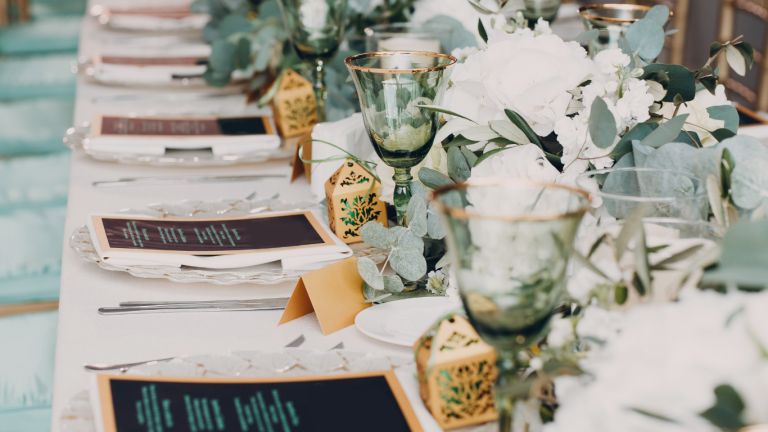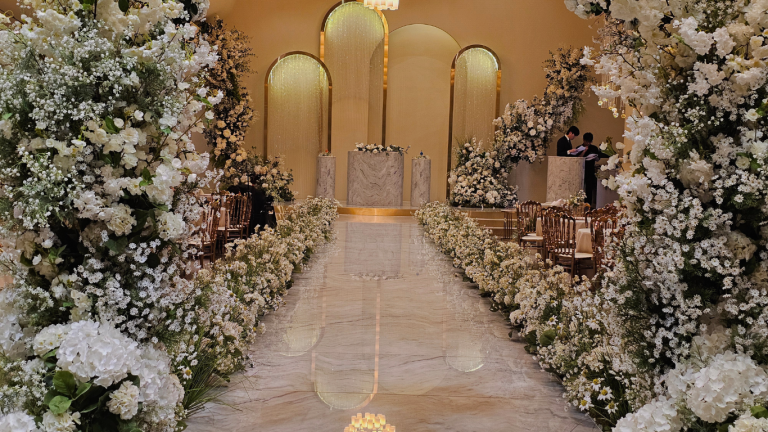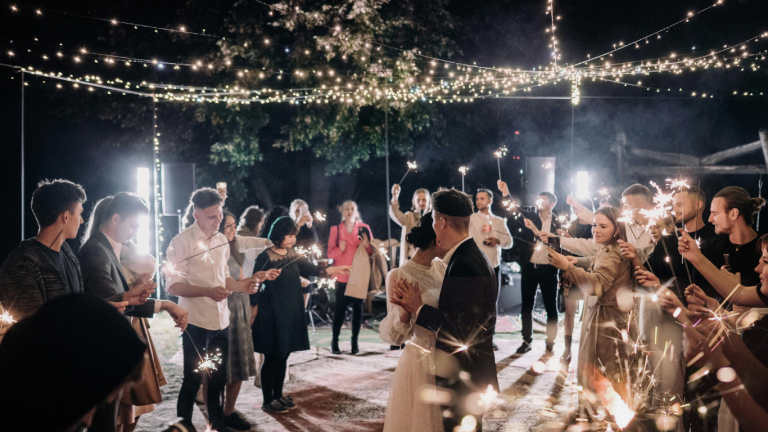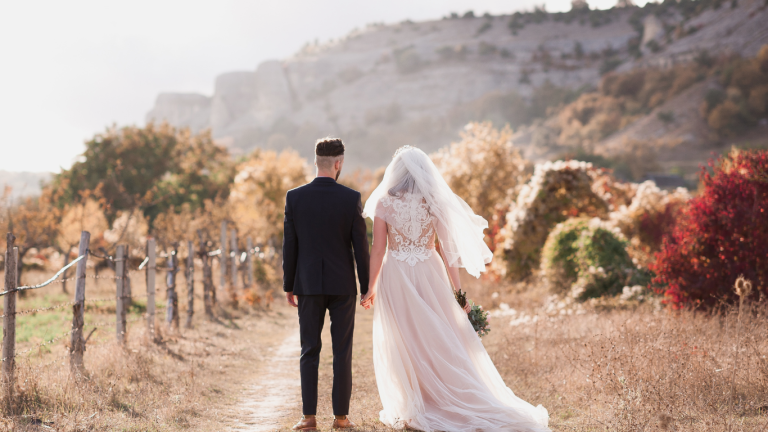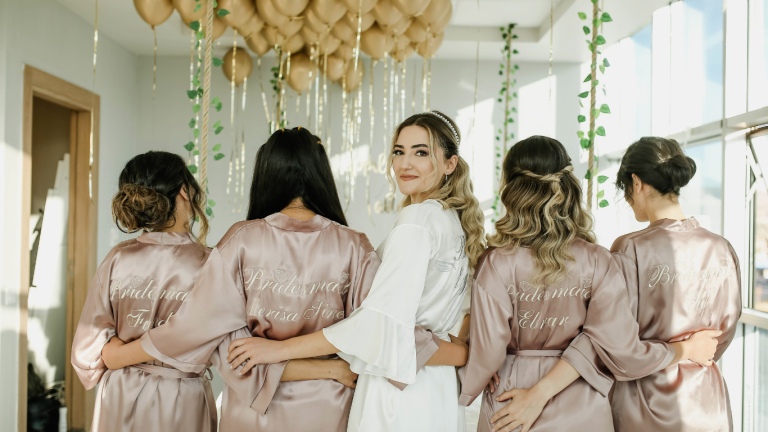Weddings are all about striking the balance between tradition and personal expression and in 2025, florals are stepping into the spotlight even more boldly. One of the buzziest new movements? The bridal bag bouquet (also called a bouquet purse or floral bag bouquet). But that’s just the start. From single-flower arrangements to drought-friendly foliage, here’s what’s trending in bridal bouquets this year and how brides can use these ideas to shape their own wedding day magic.
Why the Bridal Bag Bouquet is Turning Heads

Traditionally, brides carry a handheld bouquet, but the bridal bag bouquet reinvents that accessory by merging florals with fashion. Think floral arrangements built into or styled like a purse or mini bag. This look blends utility and artistry, making the bouquet feel more like a statement piece than just a floral accessory.
💐 Bridal bag bouquets are taking over the global wedding market. 💐 @kalibridal is turning wedding bouquets into handbags — and brides can’t get enough. These purse-shaped flower bouquets look chic, original, and double as a statement accessory for the big day. The trend has gone viral in the bridal niche, with florists already charging premium prices as demand grows. It’s a clever twist on tradition that proves how small design changes can reshape an entire industry. — 🎯 I share clever product and business ideas from around the world. Follow @dailyideasguy for more.
♬ original sound – Ranbir Arora
Benefits and appeal
-
Ease of handling: Many brides feel more comfortable holding a purse than gripping stems, giving photos and movement a more relaxed, elegant effect.
-
Statement accessory: Because it feels couture, a bouquet purse can become a focal point of the bridal ensemble, an intentional, editorial-worthy element.
-
Versatility in design: Florists are experimenting with mixed fabrics, basket bases, structured handles, and sculptural forms.
-
Trend alignment: This concept rides the wave of accessory-hybridization, blending florals and fashion for more modern, fluid wedding styling.
If you want your bouquet to do double duty, beautify the photos and serve as a wearable art piece, a bridal bag bouquet is a refreshingly bold choice.
Bouquet Trends: What’s Blooming This Year
Beyond the bridal bag bouquet, florists and couples are embracing new (and revived) ideas for bouquet design. Here are some of the top bouquet trends to watch and to adapt.
1. Monofloral & Monobotanical Bouquets
Using just one type of bloom — for example, all ranunculus, all lilies, or all baby’s breath, gives a clean, modern, and sculptural feel. This approach reduces “noise” and lets a single bloom shine.
2. Cascading & Oversized Designs
Drama returns. Bouquets with falling floral vines, trailing greenery, or elongated silhouettes are making a comeback, offering a romantic “waterfall” effect.
3. Greenery as Hero
Instead of merely filling gaps, foliage and botanicals are taking center stage. Ivy, mint sprigs, strawberry vines, and lush garlands bring texture, movement, and organic charm.
4. Texture Over Color
2025 leans into tactile richness: dried grasses, preserved elements, seed pods, woven wraps, and layered foliage bring depth, even if the color palette stays subtle.
5. Wild & Garden-Inspired Bouquets
Bouquets that look as though they were freshly gathered from a meadow, loose, untamed, and full of little surprises continue to charm in 2025.
6. Sustainable & Eco-Conscious Florals
Couples increasingly favor locally sourced, seasonal blooms, recycled foliage, and reusable or biodegradable wrappings. Choosing hardier stems or potted plants as keepsakes is also part of the eco shift. +
7. Bold Color & “Mocha Mousse” Accents
Expect to see the warm, muted neutral tone “mocha mousse” used as a floral accent in 2025, pairing beautifully with blush, terracotta, and deep greens.
8. Sculptural & Brutalist Arrangements
Some florists are pushing boundaries with sharp angles, architectural lines, and a “less is more” sensibility drawn from Brutalist design, blending raw textural contrasts and floral tension.
How to Choose the Right Bouquet Trend for You
Here are a few guiding questions to help your readers (brides-to-be) think through which bouquet style suits them best.
| Question |
Why This Matters |
Quick Tip |
| What is your wedding aesthetic / venue? |
A more natural garden wedding may suit wild bouquets, while formal ballrooms benefit from sculptural or monofloral simplicity. |
Match bouquet scale and style to the setting (e.g. cascading in a cathedral, monofloral in a modern hall). |
| How much do you want your bouquet to “pop”? |
If it’s a focal accessory, a bridal bag bouquet or dramatic cascade stands out. If you prefer harmony, go subtle and botanical. |
Consider whether your dress is already richly detailed, if so, let the bouquet be more minimal. |
| Are there logistic or comfort needs? |
Weight, ease of carrying, longevity, and travel constraints may affect whether you go with a heavy cascading bouquet vs. a lighter monofloral or bag-style piece. |
Test the bouquet feel during trial, hold it for minutes to see how it feels in movement. |
| Is sustainability important to you? |
If so, prioritize local blooms, reusable components, potted elements, and less “fluff.” |
Ask florists about their sourcing and request dry elements or potted plants for after the wedding. |
| Do you want a keepsake? |
Some bouquet styles (preserved, dried, potted) transition better into long-term display. |
Use ribbons, charm holders, or glass vases that can be reused post-wedding. |
Spotlight: How to Work a Bridal Bag Bouquet Into Your Day
-
Design with structure in mind – The “bag” form often needs a frame or support (e.g. wicker basket, rigid pouch, wire handle) beneath the florals.
-
Balance volume & profile — Ensure the floral mass doesn’t overwhelm your arm or side profile when walking or posing.
-
Coordinate with dress textures — Pair with lace, satin, or beadwork in complementary or contrasting floral tones.
-
Test functionality — Can you rest it on a ledge, hold it comfortably, access pockets inside?
-
Add personal touches — Use ribbon, charms, heirloom jewelry, or small custom tags to tie it into your story.
Trends are a starting point, your bouquet should ultimately reflect you. Whether you lean into the experimental glamour of a bridal bag bouquet or prefer the sculptural clarity of a monofloral arrangement, 2025 gives you ample floral freedom. Let your bouquet not just accompany your walk down the aisle — let it whisper your style, your story, and your heart.
Featured Image: On Fab Day

